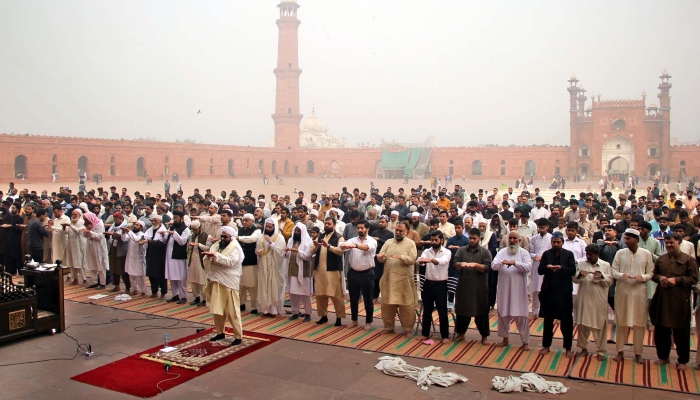LAHORE: The Punjab authorities has performed a profitable trial of native know-how for synthetic rain in a bid to mitigate the results of dense smog within the province.
The method of ‘cloud seeding’ was carried out in Jhelum, Gujar Khan, Chakwal and Talagang, which resulted in rainfall within the first two areas inside a couple of hours.
The undertaking collectively performed by the Punjab authorities, Pakistan Military’s Scientific Analysis and Improvement consultants, Military Aviation, Pak Arab Refinery Restricted (PARCO), and the Environmental Safety Company.
All related establishments utilised their native experience and superior know-how to efficiently full this trial.
The substitute rain goals to fight smog that has considerably dropped the visibility in Lahore, Multan and different elements of Punjab, rising the danger of respiratory illnesses and forcing closure of instructional institutes and sure restrictions.
Lahore — a metropolis of 14 million folks filled with factories on the border with India — frequently ranks among the many world’s most polluted cities, nevertheless it has hit report ranges this month, prompting authorities to take extraordinary measures to struggle off smog.
As Punjab battles with air air pollution with the arrival of winter season, the AQI of Punjab capital has topped Swiss group IQAir readings because the world’s most polluted metropolis, for a lot of the week.
Punjab Chief Minister Maryam Nawaz Sharif congratulated all scientific consultants and related establishments on the success of the synthetic rain experiment.
This success will open new avenues for technological development in Pakistan and assist alleviate weather-related points for the general public.
In the meantime, Punjab province declared a well being emergency as a consequence of poisonous smog on Friday, banning building, shutting colleges for one more week and transferring universities on-line, whereas tons of of hundreds of Muslims prayed for rain and forgiveness.

The trustworthy gathered at over 600 government-run mosques within the province for “Namaz-e-Istisqa”, a voluntary prayer for rain usually provided in occasions of calamities, stated Talha Mahmood, spokesman for the provincial Non secular Affairs division.
Folks prayed to Allah Almighty to finish the dry spell and alleviate the well being hazards brought on by smog.
The province, Pakistan’s most populous, grapples each winter with smog, however air air pollution has worsened in recent times, on account of chilly air trapping mud, low-grade diesel fumes and smoke from unlawful stubble burning on fields.
Sajid Bashir, spokesman for the provincial Setting Division, attributed this yr’s extreme air pollution to an absence of rain in September and October. “Final yr, rain spells decreased particulate matter; this yr, we’re nonetheless ready,” he stated on Friday.
Punjab Senior Minister Marriyum Aurangzeb, saying smog-reduction measures at a press convention, stated the federal government had ordered the closure of building, brick kilns, and furnace-based vegetation in Lahore and town of Multan.
She stated there can be a whole three-day lockdown from subsequent Friday if the state of affairs doesn’t enhance.
Final week the province ordered colleges to shut till Novovember 17, and on Friday the shift to on-line studying was prolonged for one more week. Schools and universities will even shut down, transferring to digital courses.
Authorities have already banned entry to parks, zoos, playgrounds and different public areas.
Different elements of South Asia are additionally coping with excessive ranges of air pollution and Punjab blames neighbouring India for contributing to its hazardous air high quality. New Delhi, the world’s most polluted capital, has banned non-essential building, moved youngsters to digital lecture rooms and requested residents to keep away from utilizing coal and wooden from Friday.
With further enter from Reuters
